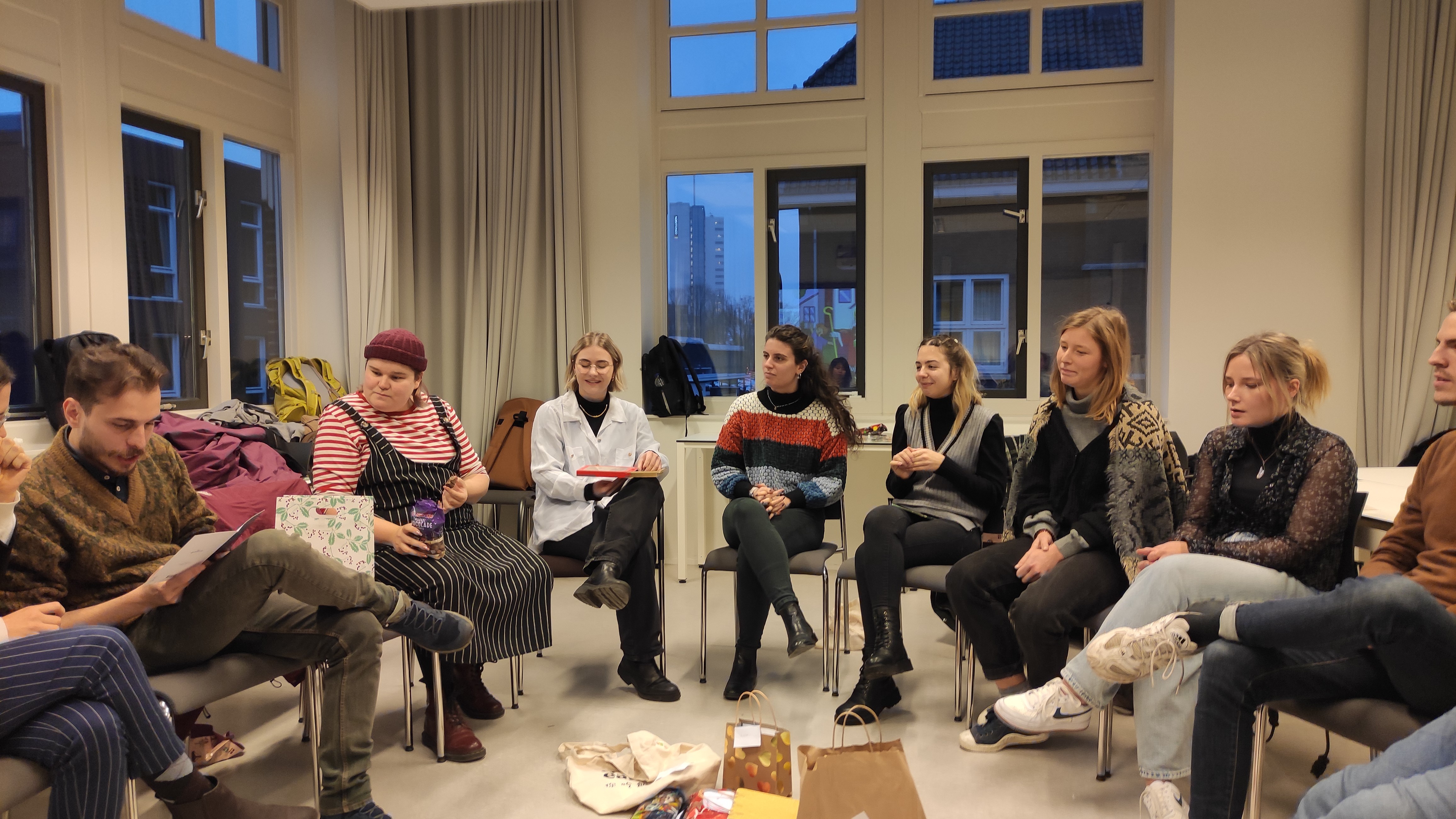Remember that learning is more effective when done in groups, so join in and offer your opinions rather than separating yourself from the group
Hello, my name is Haniar Hossain, and I am a second-year master’s student at Tallinn University studying Communication Management. I took part in the Eurocampus program in my 3rd semester, which was organised by Utrecht University and the next Eurocampus program will be organized by our university.
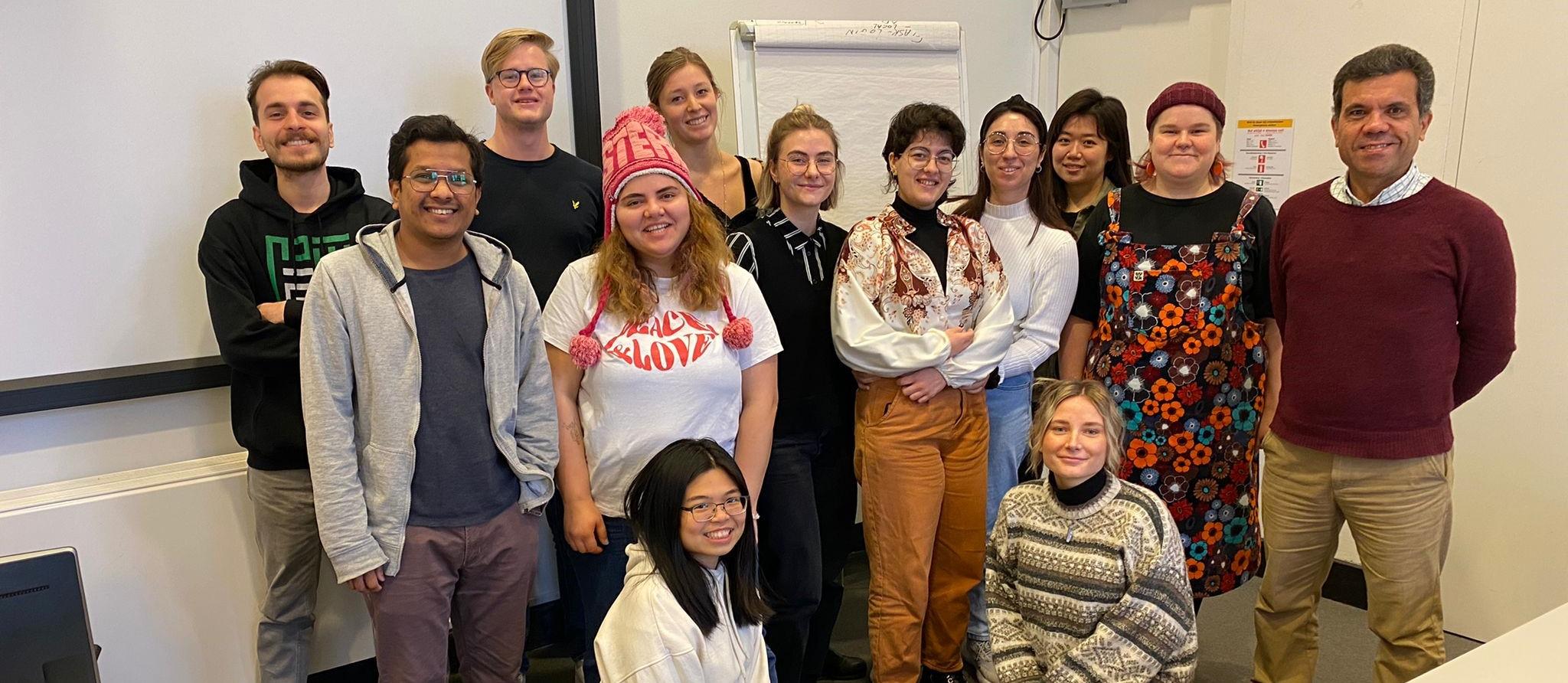
Studying at Tallinn University is my first experience studying abroad, especially in Europe. I am from Bangladesh, and when I moved to Estonia to live and pursue my studies, I became aware of both academic and cultural differences (e.g., collectivistic vs. individualistic society).
I discovered information about scholarships in the regular university newsletter, specifically for the Erasmus program. I looked into the scholarships, but I was not particularly interested in applying because I had just moved to a new country and was still trying to get used to the local culture and get over the culture shock. Nonetheless, one day our Professor of Intercultural Communication, Anastassia Zabrodskaja, provided some details about Eurocampus and the linguistic landscape study conducted by several students under her supervision in Australia.
This inspired me to continue exploring and to accept the challenge of learning about various cultures. Before applying, there was considerable uncertainty I had about what to do and what will I achieve. I will need to study more subjects and get more credits in the upcoming semester as well as figure out how to handle housing and financial concerns as well as adapt to a new culture. On the other side, I also wanted to see other people's cultures, look at various values, and live life like those students who went to Australia to study. Additionally, I wanted to push myself so that I could be strong enough to overcome culture shock, adapt, and lessen homesickness. Finding the differences and similarities in the academic culture was also a major driving force. I am very grateful to Birgit Rosenberg, the Erasmus+ coordinator at our school, for making my path to obtaining the Erasmus+ student exchange grant go smoothly.
My experience while studying at Utrecht University, it was all-day classes and short and intensive programmes. It seemed like we had to work a lot in this short period of time, but the learnings, classes, and works were quite fun. We had three days of classes for each subject, but we were given information as much as possible so that we could recognize the problems and know where to go for answers. We became familiar with different concepts for defining intercultural experiences. There were numerous theoretical definitions taught, as well as pertinent real-world instances and justifications. For example, having a clear understanding of immigrants' and migrants' rights and what they should do, developing a nation's branding and diplomacy policy through the use of soft power, human rights laws, and workplace diversity policies, and understanding the various gender identities and the significance of each to various nations' and businesses' international trade.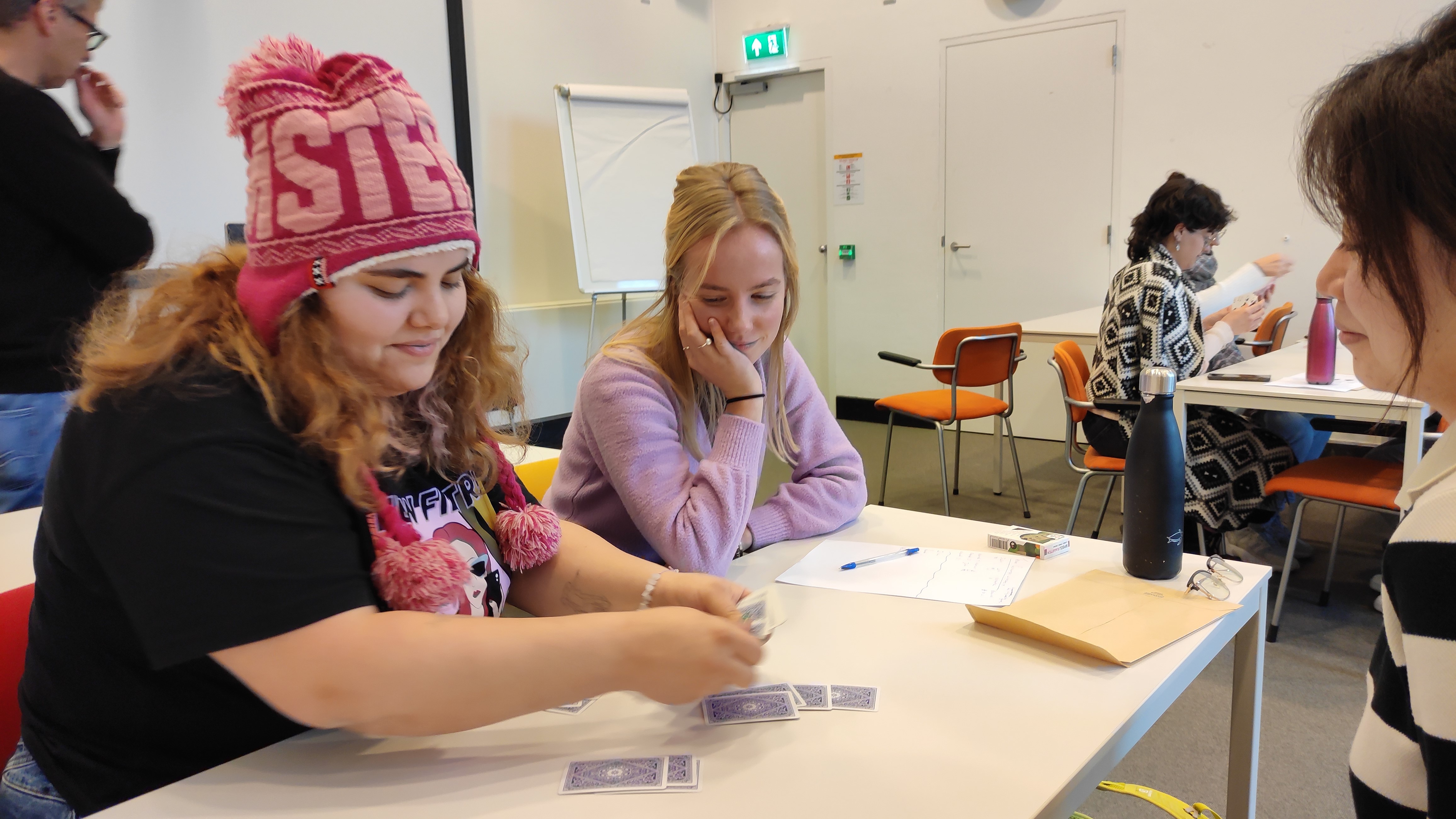
In addition to theoretical lessons, we also participated in a variety of practical fieldwork activities that were very interesting and memorable. We analysed the language of the tote bags carried by Utrecht students. We played a maze-solving game over an audio call from various locations in which participants had to direct one another using their respective native languages without seeing each other's faces, facial expressions, or other side signs. It involved learning how to handle problems and interact with people from various cultural and linguistic backgrounds. Playing card games in class was another enjoyable memory. Although it was my first-time experiences playing cards but also had effective learning to understand how we adapt to a new culture and how people uphold the traditions of their own cultures and rules. It was a game that taught us about politeness and cultures effectively with many fun memories.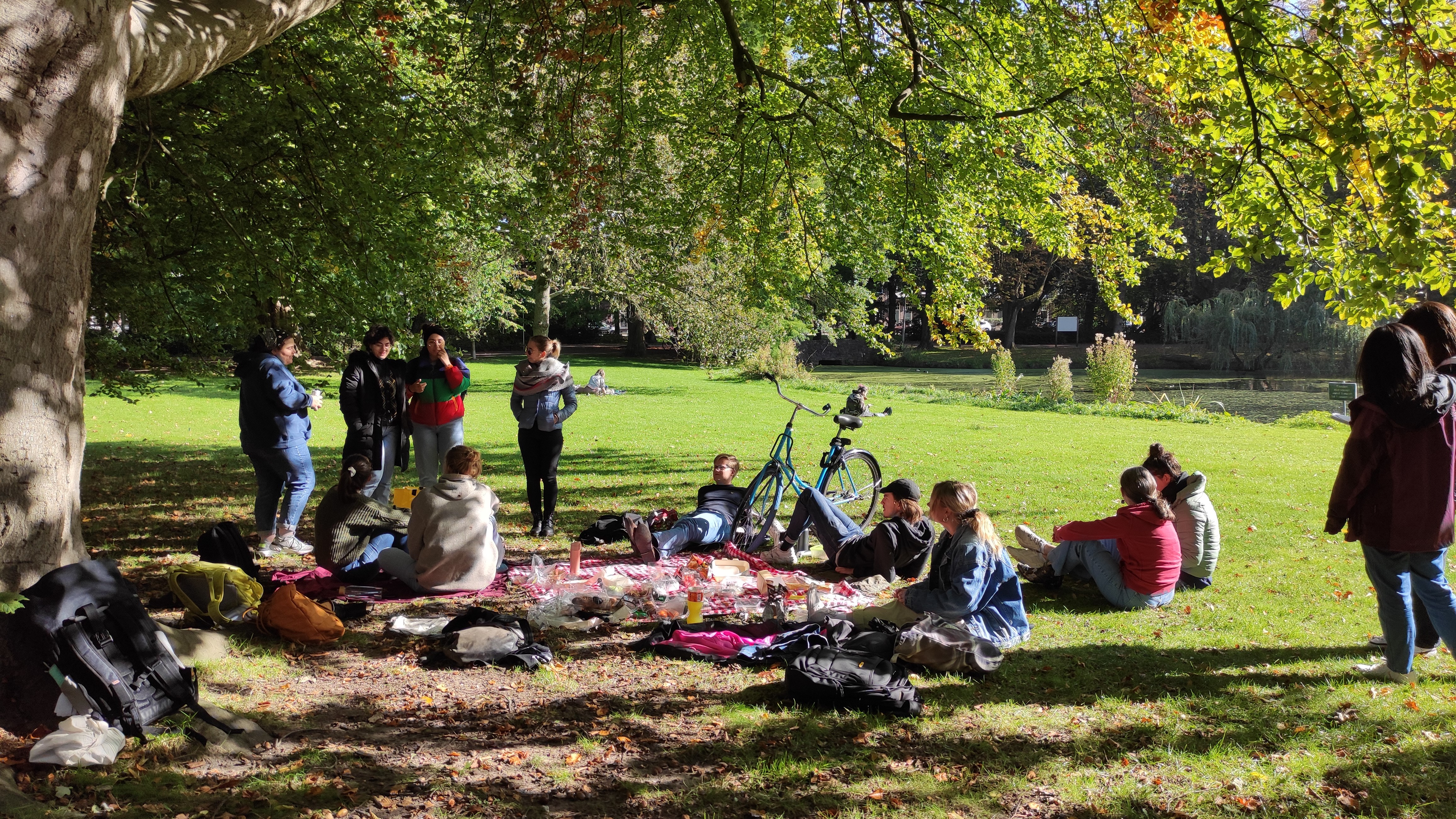
There are numerous other unforgettable experiences I had, including a picnic we took in a park as part of our study during Professor Debbie Cole's sessions. We were eating, gossiping and enjoying the sunny weather, on the other hand, Debbie was assisting us by responding to our questions and providing individual counselling.
We also celebrated “Sinterklaas”, a Dutch Christmas celebration, and exchanged gifts with to each other.
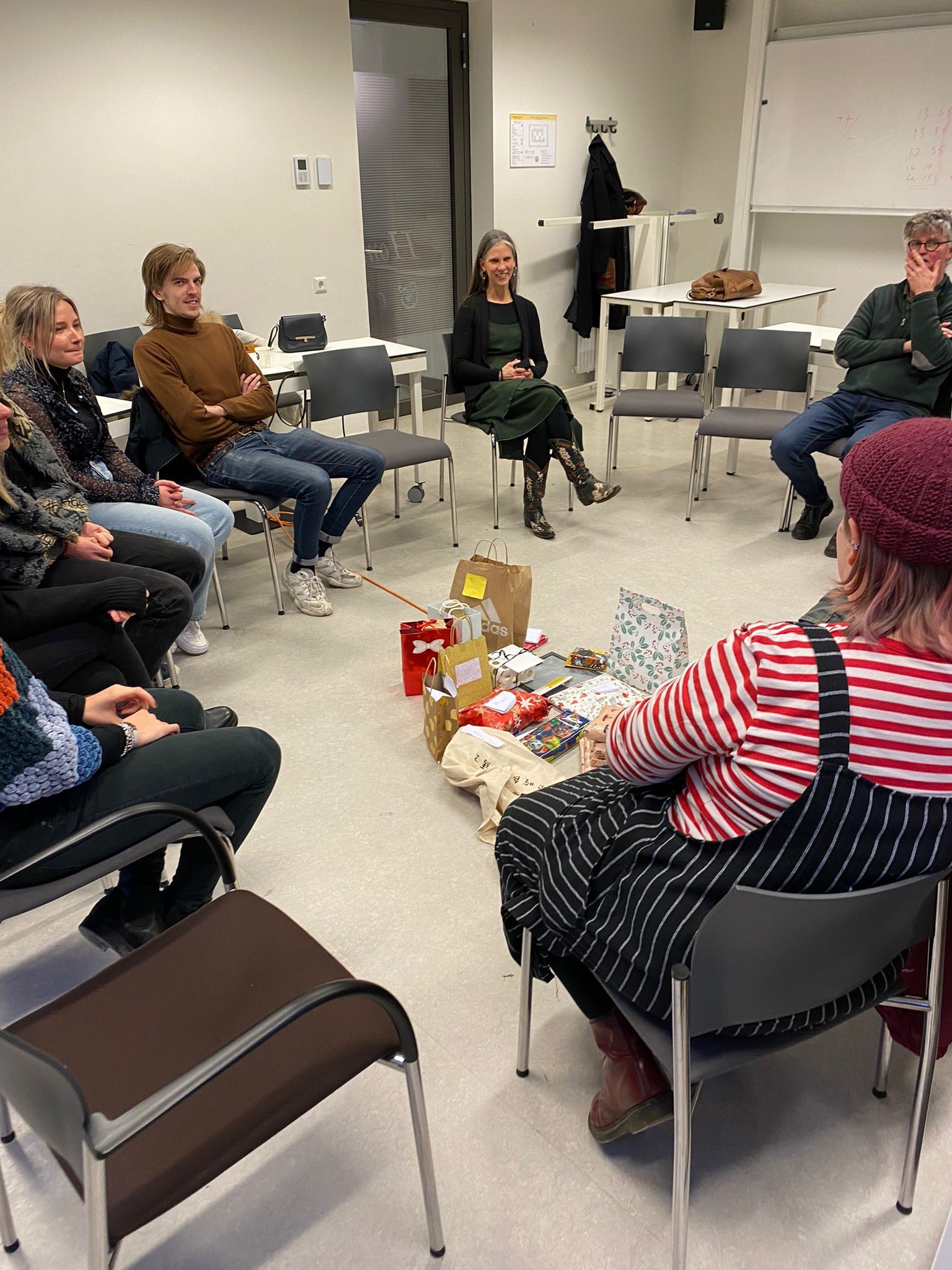
Aside from theoretical learning and classwork, learning from each other, both from students and professors was another advantage, especially when they shared their personal experiences. Students who came from different countries had different experiences; they discussed their viewpoints, their learnings, and their thoughts on particular views. Therefore, in this way, I was able to compare differences and to learn about their countries.
My advice would be to the students who would like to join Eurocampus in 2023, is do not get stressed seeing the subject list, this is an intense program, but course pressure is just about right. You just have to enjoy the classes and do the homework on time. You will have two weeks to submit your assignments/reports or field works but it would be better if you could finish your assignments before starting your next course. This way, you would only have to focus on one task at a time and would not have a backlog of other things on your to-do list. By doing this, you will be able to engage in your upcoming classes without worry and enjoy the opportunity to study alongside your colleagues.
Remember that learning is more effective when done in groups, so join in and offer your opinions rather than separating yourself from the group. You will learn something new this way, and other people will benefit from what you said as well. This would be a new phase of learning, a “Hybridity”!
